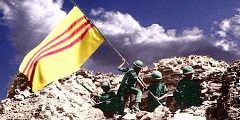V́ sao thiên tài toán học Nga từ chối 1 triệu USD?
Vnexpress: Thứ năm, 12/5/2011
Grigory Perelman, nhà toán học người Nga từng từ chối giải thưởng một triệu USD, tuyên bố ông biết cách kiểm soát cả vũ trụ nên chẳng cần tới tiền.

Nhà toán học Grigory Perelman. Ảnh: illumemag.com
Vào tháng 3/2010, Viện Toán học Clay (CMI) tại Mỹ thông báo họ sẽ trao khoản tiền thưởng trị giá một triệu USD cho Grigory Perelman, nhà toán học Nga, do ông chứng minh được giả thuyết Poincaré, một trong bảy vấn đề toán học quan trọng nhất trong thiên niên kỷ thứ hai chưa được làm sáng tỏ.
Nhưng Perelman, hiện thất nghiệp và sống cùng mẹ trong một căn hộ nhỏ ở thành phố St Petersburg, từ chối nhận giải thưởng. Lư do mà ông đưa ra là CMI phớt lờ nỗ lực của Richard Hamilton, một nhà toán học khác, trong quá tŕnh chứng minh giả thuyết Poincaré. Tuy nhiên, một bộ phận dư luận không tin đây là lư do khiến ông từ chối giải thưởng.
Nhật báo Komsomolskaya Pravda của Nga cho biết, tiến sĩ Perelman đă tṛ chuyện với một nhà sản xuất phim có tên Alexander Zabrovsky vào cuối tháng 4. V́ Zabrovsky sắp sản xuất một phim tài liệu về các nhà toán học xuất sắc nhất thế giới nên Perelman đồng ư trả lời những câu hỏi phỏng vấn của ông. Trong cuộc phỏng vấn nhà toán học nhắc tới khái niệm trống rỗng. Ông cho rằng t́nh trạng trống rỗng tồn tại khắp nơi và con người có thể tính toán được nó.
“Tôi cùng các đồng nghiệp đă t́m ra cách tính toán sự trống rỗng. Chúng tôi hiểu rơ các cơ chế lấp đầy những khoảng trống xă hội và kinh tế”, ông nói với nhà báo tuần trước.
Perelman nói nghiên cứu của ông có thể mở đường cho sự ra đời của nhiều ứng dụng to lớn trong nhiều lĩnh vực - từ công nghệ nano tới các bộ môn khoa học xă hội. Nó sẽ giúp nhân loại hiểu bản chất tự nhiên của vũ trụ. Do hoạt động nghiên cứu quá thú vị nên ông không c̣n thời gian cho những vấn đề khác.
"Tôi biết cách kiểm soát cả vũ trụ, vậy th́ tại sao tôi phải theo đuổi một triệu USD?", ông nói.
Nhà toán học được xưng tụng là "người thông minh nhất thế giới" cũng giải thích nguyên nhân khiến ông không muốn trả lời phỏng vấn của giới truyền thông suốt một năm qua. Perelman khẳng định ông tránh xa giới truyền thông v́ không muốn nổi tiếng và cũng sợ hành vi xấu của một số nhà báo.
Giả thuyết Poincaré, được nhà toán học lỗi lạc Henri Poincaré đưa ra năm 1904, liên quan đến cấu trúc bên trong của các định dạng ba chiều. Chứng minh giả định này là một trong những vấn đề làm đau đầu các nhà toán học thế giới suốt 100 năm qua.
CMI xếp giả thuyết Poincaré cùng với sáu vấn đề hóc búa trong toán học thành bảy bài toán của thiên niên kỷ và tuyên bố sẽ trao một triệu USD cho người đầu tiên giải quyết được một trong số các vấn đề.
Perelman, người từng làm việc ở Viện toán học Steklov ở St Petersburg, bắt đầu đăng lên mạng các tài liệu chứng minh giả định năm 2003. Loạt kiểm tra sau đó chứng minh ông đă đúng.
Bốn năm trước, Perelman từng được trao huy chương Fields, giải thưởng danh giá nhất trong lĩnh vực toán học, từ Liên minh Toán học Quốc tế.
Vào thời điểm đó, Perelman phát biểu: "Tôi không hứng thú với tiền bạc hay danh vọng. Tôi không muốn bị trưng bày như động vật trong sở thú. Tôi không phải là một anh hùng toán học. Đó là lư do tại sao tôi không muốn mọi người nh́n ḿnh". Ông từ chối nhận giải và cũng không tới dự buổi lễ.
Minh Long
Nguồn: http://vnexpress.net/gl/khoa-hoc/201...i-1-trieu-usd/




 Reply With Quote
Reply With Quote



Bookmarks